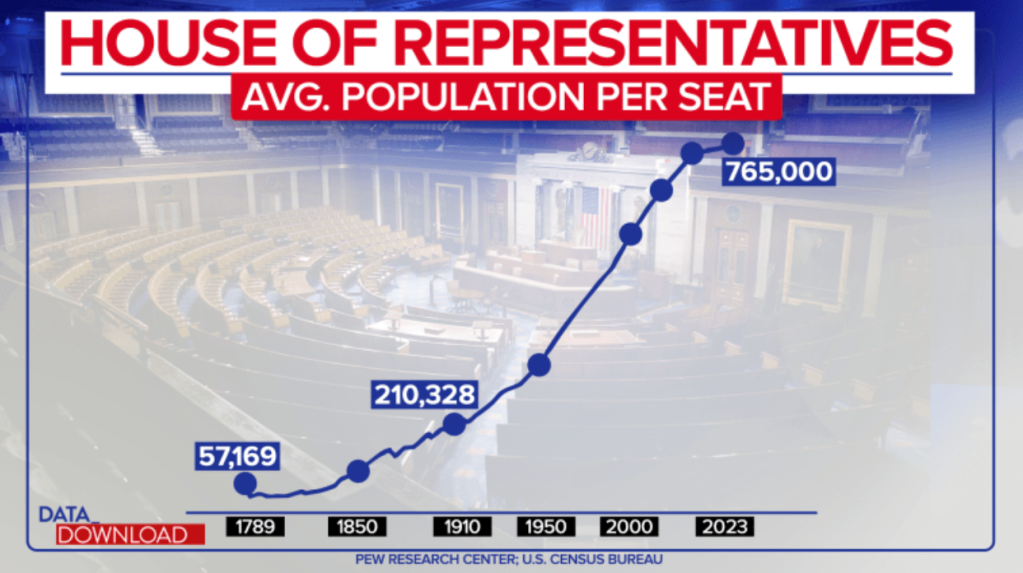The definition of “democracy” can be boiled down to “collective decision-making.” For a variety of reasons, during this election season, politicians are warning Americans about the “threats to democracy.” But an important threat rarely discussed is how the voters’ influence on our representative government is steadily being diluted as America’s population continues to climb.
Have you ever been in a group trying to make a decision? Where should we go? What should we do? What time should we meet? If your group consists of let’s say three people, then decision-making can be relatively fair, and your “voice is heard.” However, if you are one of 12 people, then your opinions carry less weight, and you may find yourself abiding by decisions less preferable.
This concept generally can be applied to our nation, including municipal and state governments, both mathematically and through our “lived experience.” Have you tried to contact your Congressional representatives lately? You probably feel lucky if you get a boiler-plate email (or letter) that actually pertains to your topic of concern. At best, your opinions will be forever lost somewhere deep in a “constituent file” on some staffer’s laptop.
There’s a major reason why today’s legislators seem overwhelmed and hard to reach – massive population growth. For example, in the Year 1900, Americans were represented by 386 U.S. representatives in Congress. With a total population of 76 million, that came to a ratio of one rep for every 197,000 people. But in 2024, with a total population of 336 million and 435 reps in Congress, the representation-ratio has dropped way down to one rep for every 772,000 people. In a few generations, an individual’s “voice” has become a mere whisper of what it once was. This phenomenon was explained in a recent article by NBC, “The country’s population is growing but Congress is standing still” (8/3/23), and is depicted on the following graph:

The author poses a fundamental question: At what point is a representative’s district too big to represent adequately? The author postulates that “as the average population per district edges closer to 1 million, this question may gain traction.” A chilling scenario because it would mean that the U.S. population would be approaching 435 million – about 100 million more than today. Given all the problems manifesting from such a large population, voting representation may be a relatively trivial concern by then.
The alarming fact is that our nation is heading in this direction unless we slow down population growth, specifically from immigration. Even before the recent surge of illegal immigration, the Census Bureau had projected the U.S. population to exceed 385 million by the Year 2060, with more than 90% of this growth due to immigration.
We have witnessed America’s population surging by millions of people every year, while individual voters are becoming an infinitesimally small fraction of their voting district, their state, and country. Having the will of voters diluted in such a way can lead to voter apathy — a lack of interest among voters to participate in elections. In other words, a sense of disconnection and a belief that one’s vote doesn’t matter, which leads to low voter turnouts and less participation in other types of civic responsibilities. This creeping indifference towards the electoral process undermines the very foundation of democracy.
For all the talk about “threats to democracy,” population growth is a real threat that is getting very little attention. Reducing America’s unsustainable population growth, driven primarily by immigration, has many benefits (e.g., less urban sprawl, fewer water shortages, more wildlife habitat). Included on this list should be the preservation of America’s democracy.